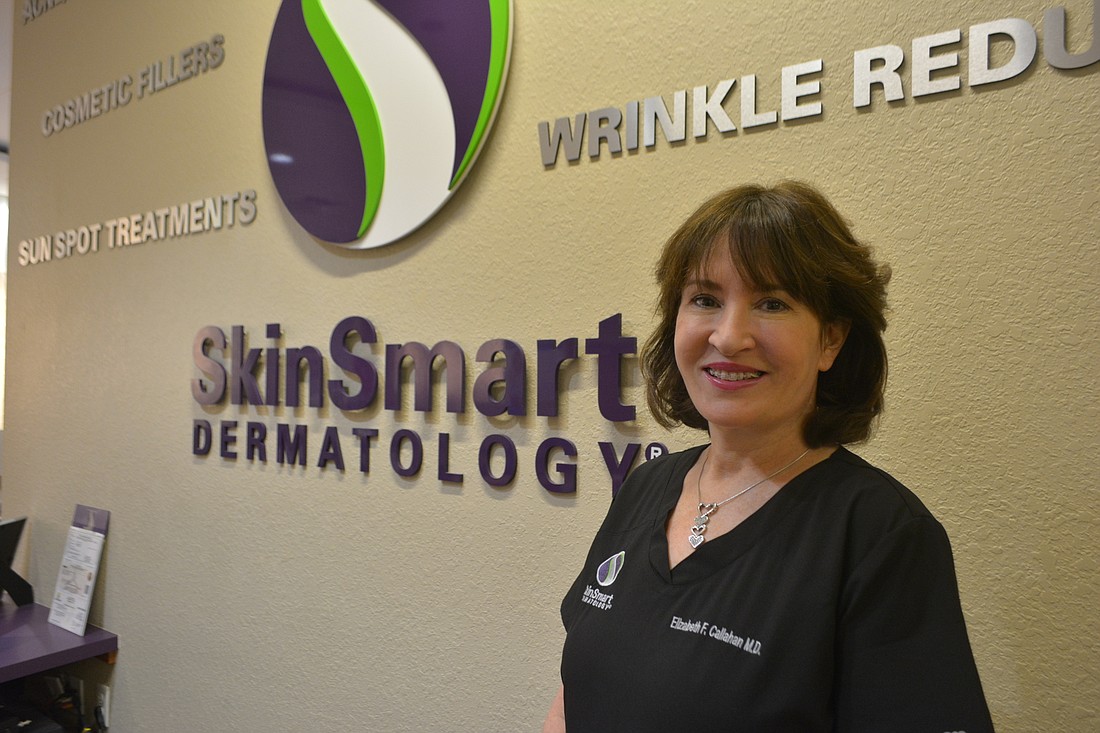- April 26, 2025
-
-
Loading

Loading

A year ago, Dr. Elizabeth Callahan froze a precancerous spot off the top of my head.
"You get a lot of sun," she said with a slight frown.
Well, yeah.
She advised I give skin protection a little more thought.
And I did, too. Well, for the most part.
I pulled an oops earlier this month when I covered the USRowing Youth National Championships at Nathan Benderson Park. I loaded up my camera and notebook, and left my hat on the front seat of the car. After walking to the Finish Tower, it hit me what I had done.
Yeah, but I was only going to be 30 minutes, or so.
Thirty minutes turned into two hours, and the top of my head was toasty.
Dumb. Dumb. Dumb.
Obviously, I need a few more spots hacked off my body before I get the message. And that means I am much like the rest of the general population.
Dr. Callahan knows my type, because she talks with them every day. She knows trying to convince a sun worshiper in a Florida paradise to take all the precautions possible can, at times, be difficult.
Even if those conversations occur at home.
Dr. Callahan founded SkinSmart Dermatology in Sarasota in 2005 and she works with her husband and partner, Tom Callahan. Tom loves to golf, which presents its own kind of problems for the skin. To say he knows better would be an understatement considering his wife's standing as a top-rated dermatologic surgeon.
Even so, he found slathering sunblock on his exposed skin left him looking, well, like a ghost.
"He had this white pallor," Dr. Callahan said during a break at SkinSmart. "He didn't like it."
That distaste for sunblock led to some red skin that was, of course, noticed by his wife. Instead of getting mad, which she said doesn't accomplish anything, she talked to him about solutions. "We found sunscreens that don't do that," she said. "His compliance has increased. It's been a slow process, but it's getting better."
Dr. Callahan would love to see things getting better, in terms of sun damage, for the rest of us, but she knows that isn't likely to happen without a lot of work. An easy place to start would be Tom's solution. Along with all the advanced medical and aesthetic skin care treatments available at SkinSmart, she said her business offers "elegant" sunblocks, such as the one now used by her husband.
"They are very well tested and you won't find them in a drugstore," she said.
But who is thinking about prevention when a suntan makes us look so darned good?
"There is no such thing as a healthy tan," Dr. Callahan said. "It's the response of your pigment cells trying to protect you. What shocks people are their dilated pores, broken blood vessels, brown spots and thickened, wrinkly skin. There is nothing healthy about it. It's much like a callus.
"But it takes so much time for the damage to show up ... sometimes 20 to 30 years."
She then gave me some historical background, noting that fair skin was the rage before the 1920s. Then parasols were dumped in the attic and skirts got shorter. People thought tans were a way of showing they had leisure time, which pointed toward their wealth.
As the years progressed, a "healthy tan" became the norm.
"There is no arguing some people look better in photography with the glow of a tan," Dr. Callahan said.
It's not surprising she has fair skin now, but was it always like that for the doctor?
Dr. Callahan grew up in Vermont, which she said has a remarkably high melanoma rate because people are inside all winter long and they rush into the sun when warmer weather arrives — without sunblock.
"My mom was a little unusual," she said. "She was into healthy eating early in my childhood and she was big on sunscreen.
"You have to encourage your kids at an early age, that's where you start."
Obviously, I didn't get the proper encouragement.
Nonetheless, Dr. Callahan said you always can get worse. She suggested people see a dermatologist about where they rank on the spectrum. They should never feel it's too late anyway, so why bother?
"It's always possible to be worse off," she said. "(Being sun smart) now might mean less cutting, less surgery, less cancers in your life. And there always is someone worse off than you."
That means I need to remember my hat, even if it means a long walk back to the car. Is it likely people like me are going to make that walk?
"I am not going to change the world," she said.
(To reach SkinSmart Dermatology, call 308-7546)